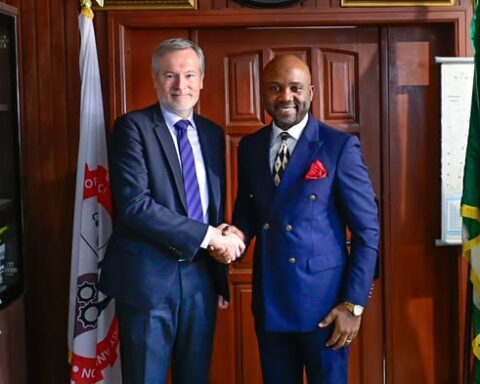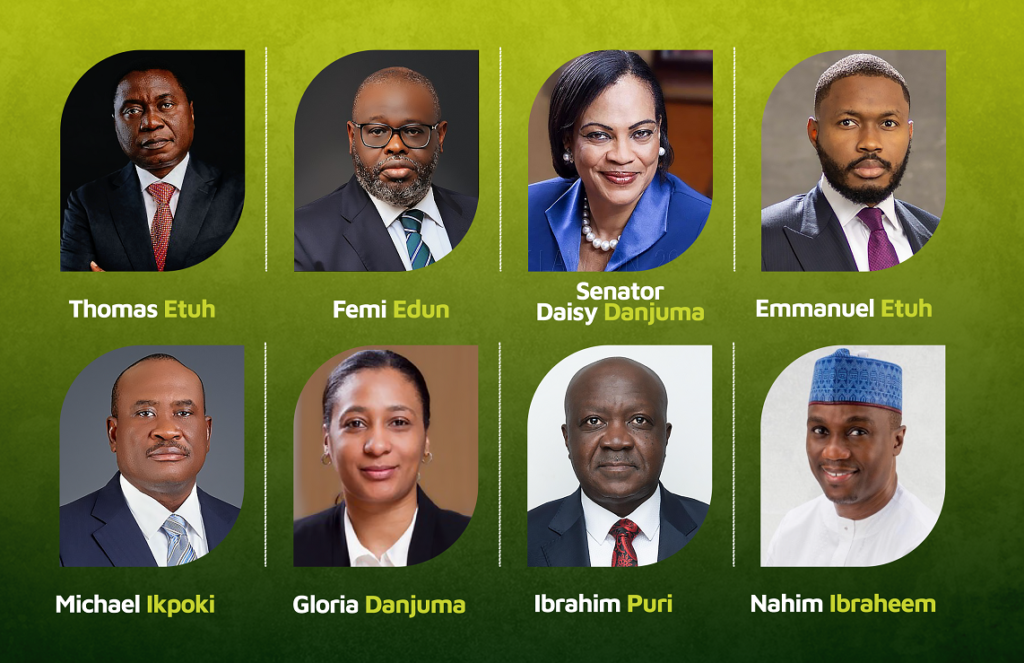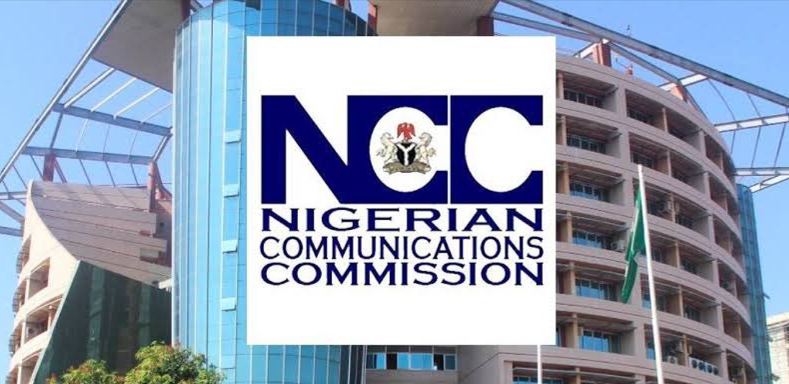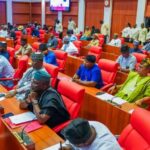By Angeline Mgbele, Bureau Chief, Northern Nigeria
The Director-General of the National Information Technology Development Agency (NITDA), Mallam Kashifu Inuwa Abdullahi, has called for stronger collaboration, practical innovation, and inclusive policymaking to ensure Africa transitions successfully into an AI-ready continent.
According to a press advisory e-penned by the Director of Corporate Communications & Media Relations at NITDA, Hajia Hadiza Umar, Mallam Abdullahi made this call while speaking during panel sessions at the Hyperscalers Convergence Africa 2025 in Lagos, themed “Fostering a Digital Africa: Connectivities, Convergence and Innovation.”
Speaking on the session titled “From Mobile First to AI-Ready: Will Africa Deliver on Innovation?” Abdullahi noted that Africa’s challenges presented immense opportunities if the right structures were put in place, reiterating that Africa’s youthful population—one of the youngest in the world—remained its greatest asset.
He said, “We have a generation that is energetic, curious, and ready to embrace any digital technology available to them. This is a major asset — but only if we equip them with the right skills to use these technologies productively. Otherwise, it could easily turn into a demographic burden driven by unemployment and underutilization of talent.
“This understanding has shaped our approach as a government. We decided to be intentional about turning this demographic advantage into a digital dividend. One of the initiatives we launched in this direction is the 3 Million Technical Talent (3MTT) programme, the largest human capacity development and digital transformation initiative in Africa. The goal is simple: to equip our young people with the digital and technical skills they need to thrive in today’s world and power Africa’s digital economy.”
On infrastructure, the NITDA boss revealed that the Federal Government, under the leadership of President Bola Ahmed Tinubu introduced new funding mechanisms to mobilise public and private resources for infrastructure development.
He cited the recently approved PPP Policy on Mediation and the Project Bridge initiative as examples of efforts aimed at aligning government, private sector, and development partner investments to accelerate digital infrastructure delivery.
He further disclosed that the government was building a robust Digital Public Infrastructure (DPI) framework to connect identity, payments, and data systems, a foundation upon which innovators could build AI-powered and digital services.
On Africa’s position in the global AI ecosystem, the NITDA DG stressed the importance of leveraging local data and nurturing domestic talent to build AI systems that reflected African realities. He warned against relying solely on models created in advanced economies, which might not account for the continent’s diversity and context.
Drawing from history, he noted that during the industrial revolutions, Africa supplied the raw materials that powered global industries but gained little technological benefit.
He said, “It wasn’t because we lacked resources or talent, but because we lacked collaboration and structural integration. As we enter this new era of digital transformation, we must ensure unity, build capacity, and collaborate to lead, not follow.”
During another panel session titled “Shaping Africa’s Digital Future: Policy and Regulatory Frameworks for Accelerated Growth,” Abdullahi advocated for a “dream big, but build small” approach to Africa’s digital transformation. He explained that meaningful progress requires practical, scalable innovations that address local needs while keeping a broader continental and global vision.
“When we talk about Africa’s growth, we must also think in the same ecosystem mindset. In the technology space, we often speak of the Nigerian tech ecosystem, the African tech ecosystem, and the global tech ecosystem. This shows that no one can succeed in isolation. Technology doesn’t respect borders or hierarchies; it connects and transforms.”
He added that as Africa built its systems, they must be designed to solve immediate challenges while keeping the bigger picture in mind. His words: “The solution you create to solve a problem in your village or city can scale up to serve your state, your country, the continent, and even the world. That’s how every major tech company began. Facebook, for instance, started as a small project to connect students but today connects billions globally.”
He urged African countries to reinvent their social contracts through inclusive, data-driven, and collaborative policymaking.
“We need to reinvent our social contract. Policymaking today must go beyond government officials sitting in offices and relying on untested theories borrowed from other nations. It has to become a collaborative process. When you design a policy without involving the actual builders — the people on the ground — you will never achieve the desired results. Such policies will simply end up gathering dust on the shelf.
“At NITDA, we are working to change that narrative through what we call the Intelligent Regulatory Framework. This approach ensures that policymaking is grounded in awareness, inclusiveness, and adaptability. To make effective policies or regulations, you must understand the industry, identify all relevant stakeholders, and make data-driven decisions. Policymaking must also be agile — when new data emerges, policies should evolve accordingly. It must be dynamic, open to innovation, and responsive to change.
“To achieve this, we ensure all critical stakeholders are part of the process of designing and co-creating policies. A good example is how we developed Nigeria’s National Artificial Intelligence Strategy. It was built through a collaborative framework that brought together Nigerians with expertise in AI to co-design the strategy. We also trained participants from civil society organisations, academia, and the private sector. This is how policymaking should be: inclusive, evidence-based, and ecosystem-driven,” he said.
Follow us on all social media platforms @dailyquery for news and analyses around the globe.



























